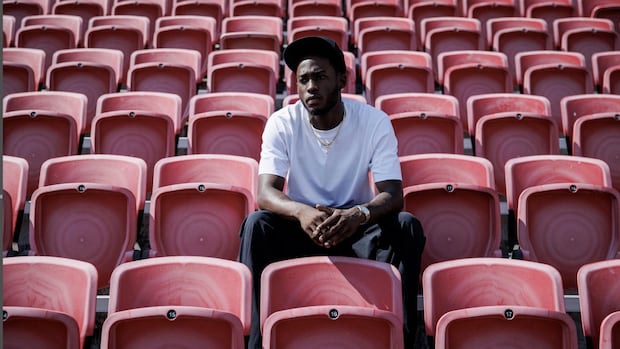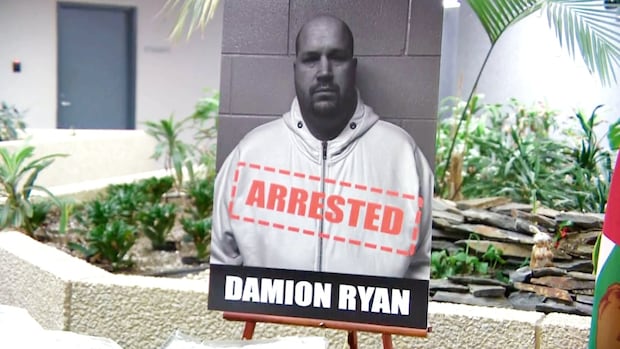“Shut up and make me a sandwich.”
“I don’t have to listen to you, go get the man in charge.”
Those are some of the comments one Halifax teacher says she has heard from some of her male students in recent years. Christine Emberley said the comments range from sarcastic sniping about a woman’s place in society to “grotesquely sexual” remarks. Sometimes, the students refuse to make eye contact, listen or acknowledge her.
“It’s frightening,” she said.
Emberley has been teaching for nearly two decades and says the sexist and offensive remarks started cropping up only in the last few years. She teaches drama in classrooms across all grade levels and said these attitudes are more common among boys in junior high and high school.
She is not the only one noticing this rhetoric in the classroom.
Luc Cousineau is a researcher at Dalhousie University and director of the Canadian Institute for Far-Right Studies. In a recent study, he analyzed what teachers said about their experiences on Reddit, a social media platform that hosts discussion boards for various communities, by filtering the teachers’ discussion board for posts that mention Andrew Tate.
Tate has millions of followers on social media, with a message of unapologetic misogyny that has drawn boys and young men to the luxurious lifestyle he projects. The 38-year-old influencer is also facing 10 charges in Britain related to three women that include rape, actual bodily harm, human trafficking and controlling prostitution for gain.
A major component of Tate’s rhetoric is the belief that women are subordinate to men. According to the latest data from Statistics Canada, just over 75 per cent of teachers are female in Canada.
Cousineau said his research, published in the peer-reviewed journal Gender and Education, showed misogynistic comments from students are disrupting learning environments, as teachers deal with sexist and degrading comments, defiance and male-supremacist sentiments.
“Teachers expressed that this content and these things that students were saying in class were making them feel unsafe,” he said.
Cousineau said boys are exposed to misogynistic influences, even if they don’t want to be, because they’re suggested by social media algorithms.
He said not all content from the influencers focuses on misogyny. They also post about bodybuilding, politics or feeling misunderstood.
“If young people are engaging with the messaging that doesn’t feel contentious, then they’re going to get that other [misogynistic] content as well.”
Lance McCready is an associate professor at the Ontario Institute for Studies in Education. He said the issue of so-called “manosphere” influencers comes up in classrooms of soon-to-be-teachers.
“It’s definitely on a lot of people’s minds,” he told CBC News.
He said young men and boys are looking for representation and relatable role models; they want to feel like their voice is heard. He said there needs to be more positive representations of masculinity for boys early in childhood.
“We have to start having these conversations and discussing it in our curriculum, in our family,” said McCready. “I would like to see more men willing to have these conversations.”
Responding to misogyny from students
When a student makes a misogynistic comment, Emberley said she responds by saying it’s inappropriate and talks to the student.
“The way that we need to deal with it, from my perspective, is curiosity and empathy,” she said. “Shame is just going to make somebody double down on that belief.
“They need guidance. They need someone who’s offering an attractive or a palatable alternative to what they’re consuming online.”
Depending on the severity of the comment, the consequences can escalate, Emberley said. In her experience, some students adjust their behaviour after an intervention while others don’t.
“When you have a kid who’s really into that messaging, are they even going to listen?”
Emberley said it’s a minority of boys who hold these anti-women opinions, but other boys rarely speak out against their peers.
“Not everybody is comfortable doing that, so sometimes it ends up feeling like the majority.”
Emberley said she’s heard from female students about their peers’ behaviour.
“There’s a lot of helplessness that they’re feeling and a lot of disgust.”
Emberley said teachers and parents should talk to boys about what they’re seeing online, but the issue requires a larger solution.
She said creating a framework to guide teachers’ responses to misogyny would help, but the process is falling behind the growth of the problem. Curriculum updates around gender-based violence are ongoing for Nova Scotia schools following recommendations in the Mass Casualty Report in response to the province’s 2020 mass shooting.
More changes to the curriculum are expected to be implemented in the fall.
Cousineau said social conditions, media and tech infrastructure make it easy for boys to latch onto these ideas. He said solutions will require more research.
“We’re talking about a global phenomenon here,” he said.
“If we are going to only have country-by-country or province-by-province actions, then we’re fighting a battle on a different playing field.”
Cornelia Schneider, an associate professor at the Mount Saint Vincent University department of education, specializes in inclusive practices in education. She said this behaviour is likely amplified by the success of political movements, like MAGA.
“These voices, that might always have existed but were more underground, now have a legitimate outlet and are allowed and applauded.”
She said responses to the influence of social media can only be so effective because of how rapid its presence has grown. She said we’re only learning about the effects of social media “in real time.”
“[It’s] this tool that we’re developing and using at the same time.”







